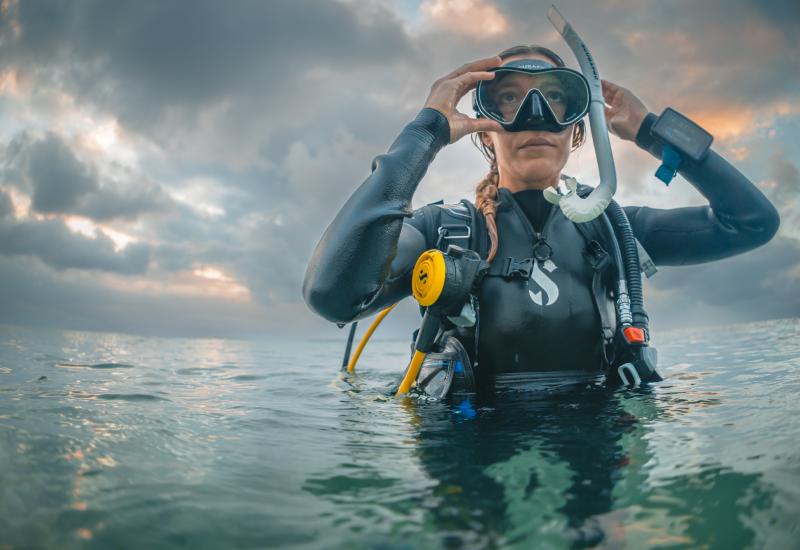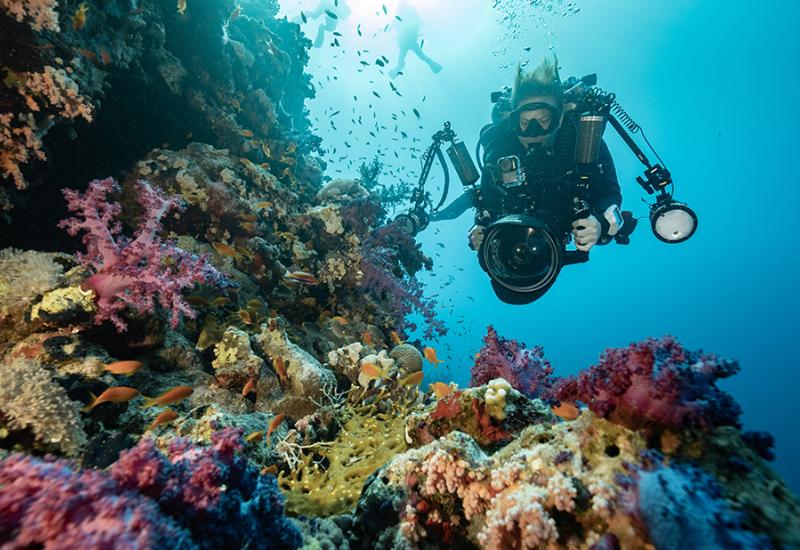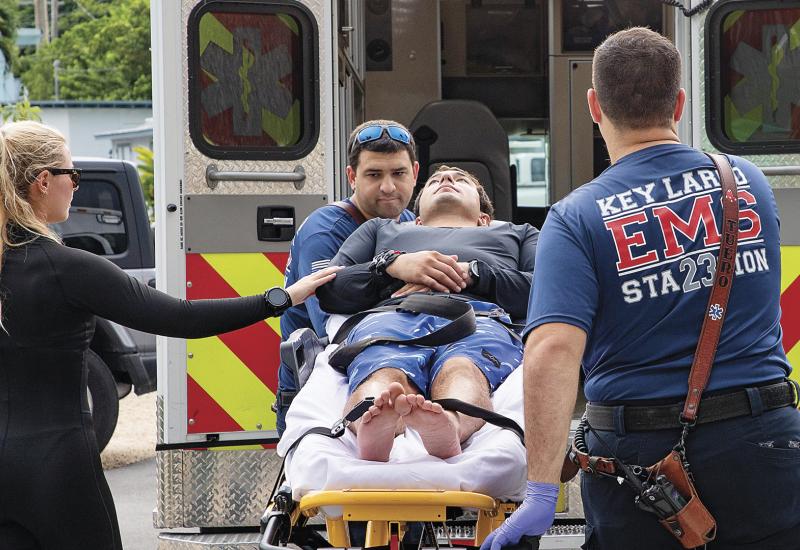Heart Disease and Diving: The First Signs and Surgery
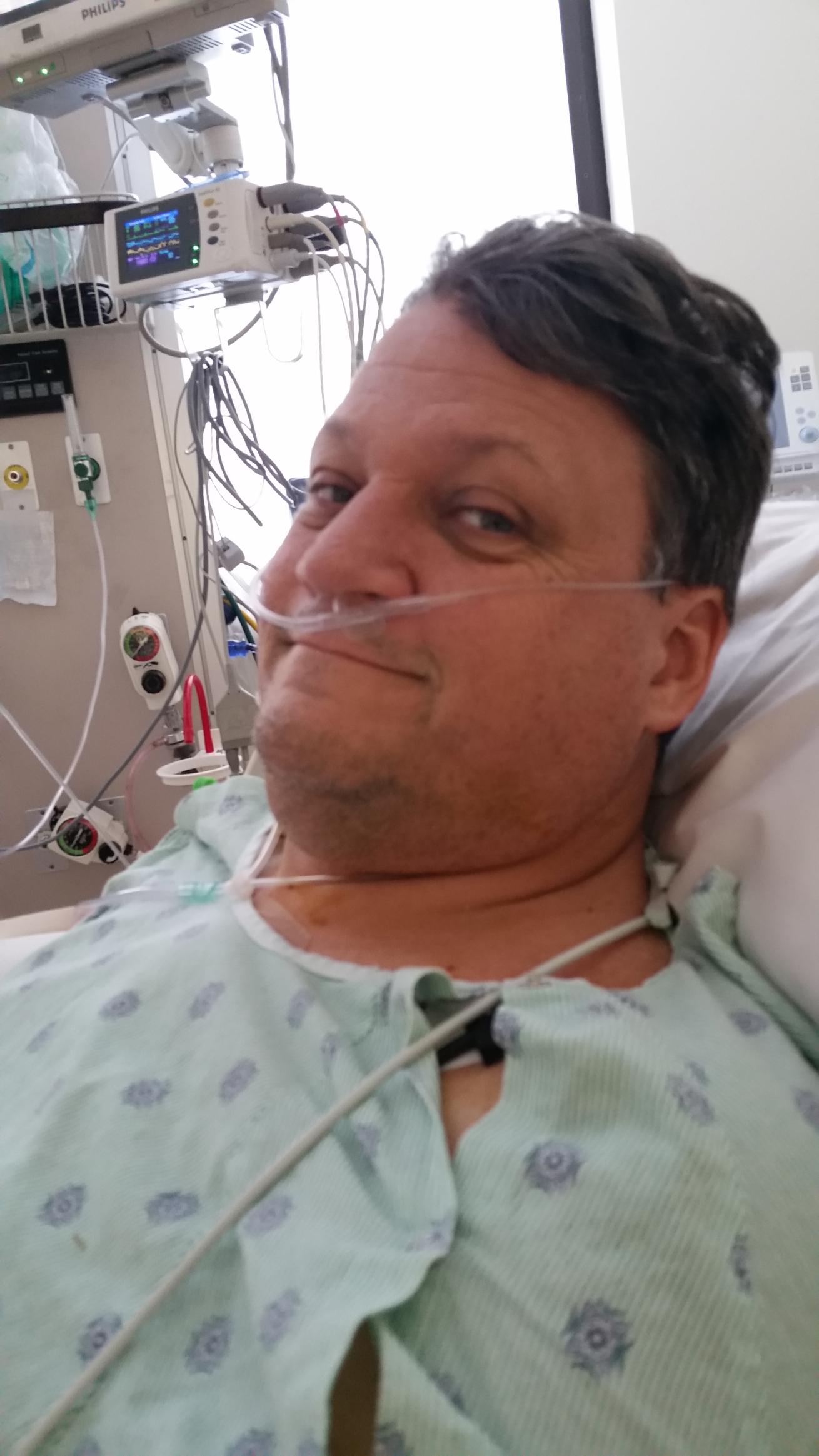
Beverly DouglasDiver and longtime Lessons for Life author Eric Douglas takes us along on his road to recovery after open-heart surgery.
Chapter 1: The First Signs of Heart Disease
I had a pain in the center of my chest. It had to be heart burn. I felt fine. My pulse was more-or-less normal. And besides, the pain was on the right side of my heart. Everyone knows chest pain from a heart attack is on the LEFT side and radiates to the jaw and then down the left arm. Everyone knows that.
A few months ago, I went to my family doctor because I just wasn’t feeling right. He referred me to a cardiologist after I mentioned a burning feeling beneath my sternum. I got a note from the heart doctor scheduling my appointment, but I was out of town that week so I told them I would reschedule later. Then the holidays arrived and I put it off. I kept eating antacids and trying to treat my heart burn. Just before Christmas, I had an episode. I’d been out on my friend’s boat for a boat parade — ate some party food and had a couple of drinks. When I got home, I doubled over with nausea, broke out in a sweat and had pain in my chest. It passed after about a half an hour. At the time I was still convinced it was really bad heart burn, but I started taking the baby aspirin my doctor prescribed and called the cardiologist for a new appointment.
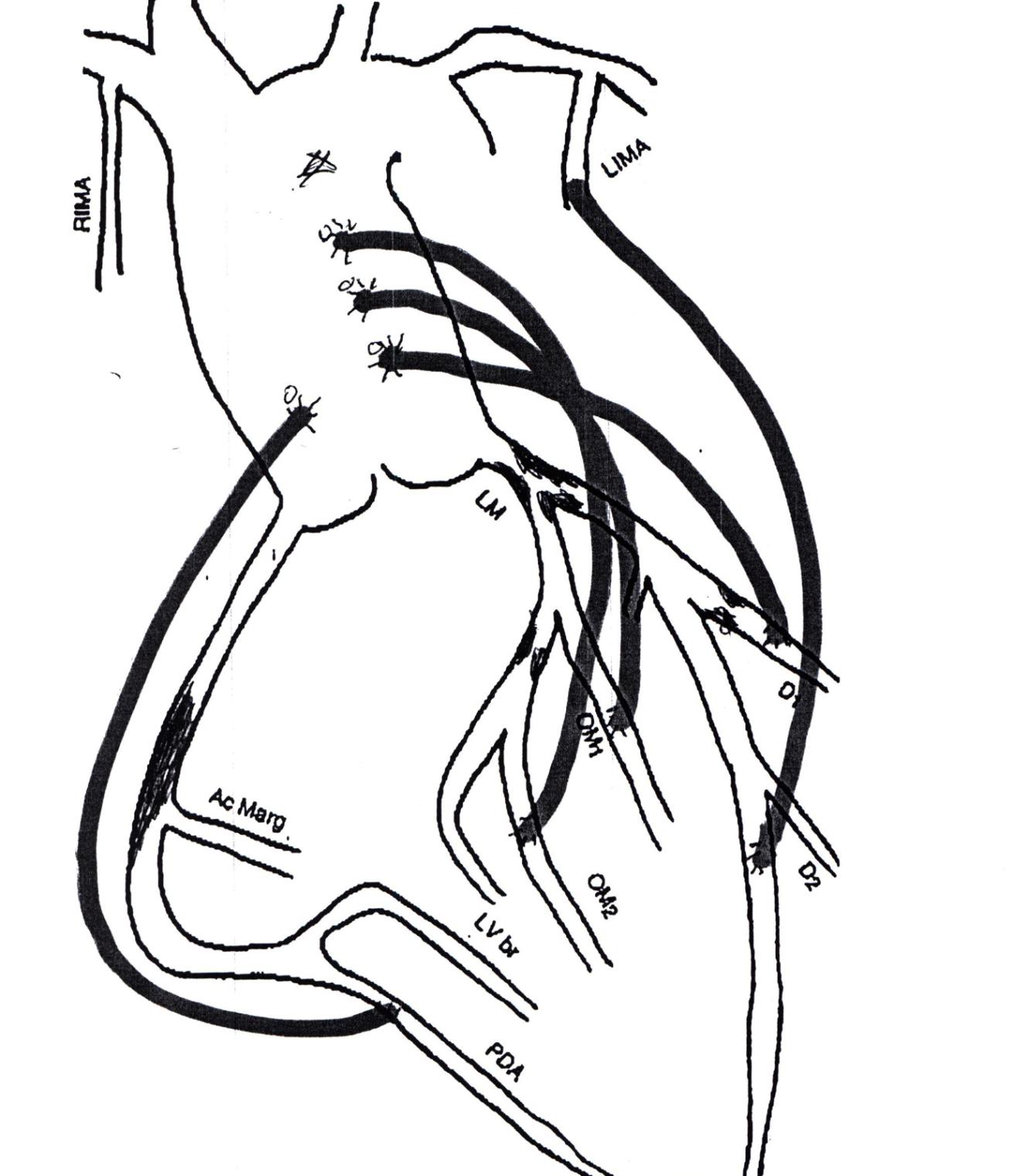
Courtesy Eric DouglasA diagram of Douglas' heart — the black lines indicate what he calls his "new plumbing" after five coronary artery bypasses.
Diagnoses and Surgery
A few weeks later, my cardiologist put me on a treadmill for a stress test and before I was done he told me I was going straight to the hospital. It would be nine days before I got back home. I had a heart catheterization, thinking they might have to put in a stent or two. (They use stents in places where the blood flow is reduced, but not totally blocked off.)
Did I get stents? Nope. They found blockages. The next thing I knew I was scheduled for open heart surgery. I ended up with five coronary artery bypasses. Five. One was 100 percent blocked. A couple more were more than 80 percent blocked. That episode right before Christmas? A heart attack.
I tell you all of this simply to help you understand that heart disease can happen to anyone. I am 48 years old, in decent shape. I exercise. I work around the house. I have never smoked cigarettes. I eat a little too much drive thru food, but still not more than a couple times a week. I have no family history of heart disease.
What’s worse is that I should know better. I’m a dive instructor and CPR Instructor. I’ve been an EMT and a Diver Medic. I’ve taught hundreds of dive instructors to be CPR Instructors. I wrote the first aid and CPR sections of Scuba Diving Safety with Dan Orr. I know the signs and symptoms of a heart attack backwards and forwards. Even then I denied and justified and explained away every symptom I had.
Heart Disease and Diving
Every year, for the Lessons for Life, I go through dive accident case files with the editorial staff to determine which cases and situations we will profile. (Yes, every Lessons for Life is based on a real situation.) As we go through those cases, an incredible number of dive fatalities are actually cardiac in nature. Divers aren’t more likely to have a heart attack, of course, but we are in a lot more trouble when we have a heart attack underwater or on a dive boat compared to being at the mall or at home. Even when you have a well-trained boat crew that has an Automated External Defibrillator, there will still be a long delay before you get to definitive care. That is assuming your buddy didn’t have to bring you to the surface and get you on board the boat. Those delays will also cost you precious minutes that could make the difference between life and death. A heart attack underwater is also a great way to lose consciousness and drown.
"What’s worse is that I should know better. I’m a dive instructor and CPR Instructor. I’ve been an EMT and a Diver Medic. I know the signs and symptoms of a heart attack."
For now, I’ll leave you with the signs and symptoms of coronary artery disease and/or a heart attack, according to the American Heart Association. If you recognize any of these in yourself, or in someone you love, get to a doctor and get checked out. It may be nothing, but it’s much better to be safe than sorry.
Signs and symptoms in women tend to be subtler, which is why heart disease is called the silent killer for women.
Warning Signs of Heart Attack
- Chest pain
- Shortness of breath
- Palpitations
- Fatigue
- Discomfort in other areas of the upper body, including one or both arms, the back, neck, jaw or stomach.
- Breaking out in a cold sweat, nausea or lightheadedness.
Read the Full Series Here
Eric Douglas co-authored the book Scuba Diving Safety and has written a series of adventure novels, children’s books and short stories — all with an ocean and scuba diving theme. Follow him on Facebook or check out his website at booksbyeric.com


